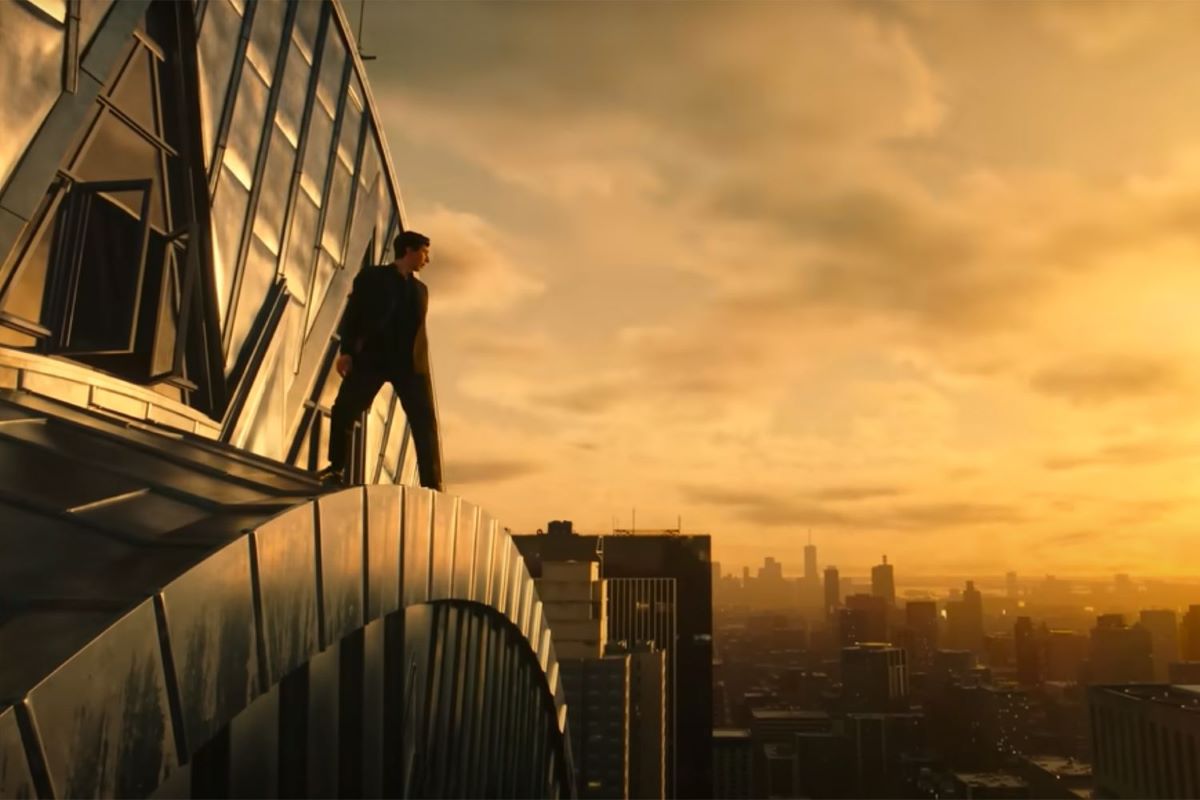Cannes 2024
Megalopolis
directed by Francis Ford Coppola
Human, all too human. It had been more than a decade since Francis Ford Coppola completed a film (his last was Twixt in 2011). And for decades, he had been nurturing, thinking about, and working on the enormous project that is Megalopolis, which has finally arrived at Cannes 77 and is in the main competition. All too human, because after the long wait, some people at the press screening grumbled during the closing credits, even booed, and because once the embargo lifted, what made the most noise were, inevitably and sadly, the numbers. Those on Rotten Tomatoes, with approval ratings plummeting. We still look at cinema with percentages, with value judgments, with reporting, adhering to the master taste. Coppola comes from another time and another world. From New Hollywood, he has forged himself as an auteur who pursues the epic and the greatness of an art—not a product—that can continuously break boundaries, go beyond, redefine horizons. Self-producing and self-promoting for over forty years, as he does now. Only with the calculated risk (the certainty?) of self-sabotage.
Megalopolis is a utopia that Adam Driver‘s protagonist, Caesar Catilina (a name that is a condensation of divergent forces), wants to shape to redesign from top to bottom the dissolute metropolis he inhabits, a New York that here takes the name New Rome, the empire dying under the blows of conspiracies and personal, egotistical dominions, blind to the future. But there is no present without preserving the future, says Caesar. And it’s all too easy to read in this the parable of Coppola himself up to this point—probably terminal, at the age of 85—of his relationship with cinema and the weight, the role he has attributed to it all his life. As the city plunges into vice, into the unbridled licentiousness of customs, and Mayor Frank Cicero (Giancarlo Esposito) fights as best he can to confirm his precarious position, Caesar arms himself with a new material, a discovery that questions even physics, the laws of space and time. Plastic, luminous, perhaps born from the mind or the desire of the heart, the megalon has an architecture that can expand from small to colossal and in its continuous infinitesimal recomposition can redefine and replace organic tissues, giving life to what should be dead.
Above all, the great power of the megalon is to stop time, which Caesar nails while he detonates buildings to be rethought or when on the edge of a skyscraper (the Chrysler Building?) he experiences extreme vertigo preventing his body from falling. To practice it, it seems the key is in expressing deep love. It is indeed when Caesar meets and falls in love with Julia Cicero (Nathalie Emmanuel) that the power is restored and strengthened. As if to say that Coppola has tried to stop the time of cinema to prevent its end by concentrating everything good (benevolent, maybe) it still has to offer. To remake One from the Heart as a dream long a lifetime, combining the ambition of the epic and a great family saga (Julia Cicero is the daughter of the nemesis, Mayor Frank Cicero, as in Shakespeare, and the internal family conflicts recall The Godfather, but also a bit of Succession) with the unashamed ambition to produce an uncontrolled mess, the precipitate of a comedy and the broadsides of messy CGI, the drifts of an unreadable narrative that speaks in declamatory tones, aphorisms, quotations (especially from Marcus Aurelius). Because there is no point in giving the viewer a finished product, again, consumed and relaunchable for spin-offs, serial versions, and video games.
It’s all there, on the screen, to watch with wide eyes and maybe even regurgitate. The hyper-saturated orange of the sky and the clouds rushing by in a world that doesn’t exist, à la Gondry, and the rain of meteors (fragments of a Soviet satellite mistakenly falling on this Roman empire) that projects terrified and dying bodies onto skyscrapers but in a dancing pose, remind us that cinema images can give substance to dreams that come true and dissolve instantly only in the unconscious, in sleep with closed eyes. Art creation does this. It invents, cloaks, moves, stuns, surprises. Drapes of wonder, abrasions, electric stabs.
And what greater surprise than a gesture, a moment so sensational within the film that as viewers we are led to directly question the images, a subversive and new act, perhaps even already past (because at the limit of the impractical, impossible, and who knows if for this reason it will never be seen outside the Cannes frame), apex of extreme astonishment, and of which we hope as many people as possible can experience. A moving encounter with History, a point of no return. Cinema that lives again luminous and numinous, for a moment, a rayon vert on the blind line of sunset. Before it’s too late, in the faintness of habit. Time, stop!
Andrea Giangaspero
Birdmen Magazine, May 19, 2024





